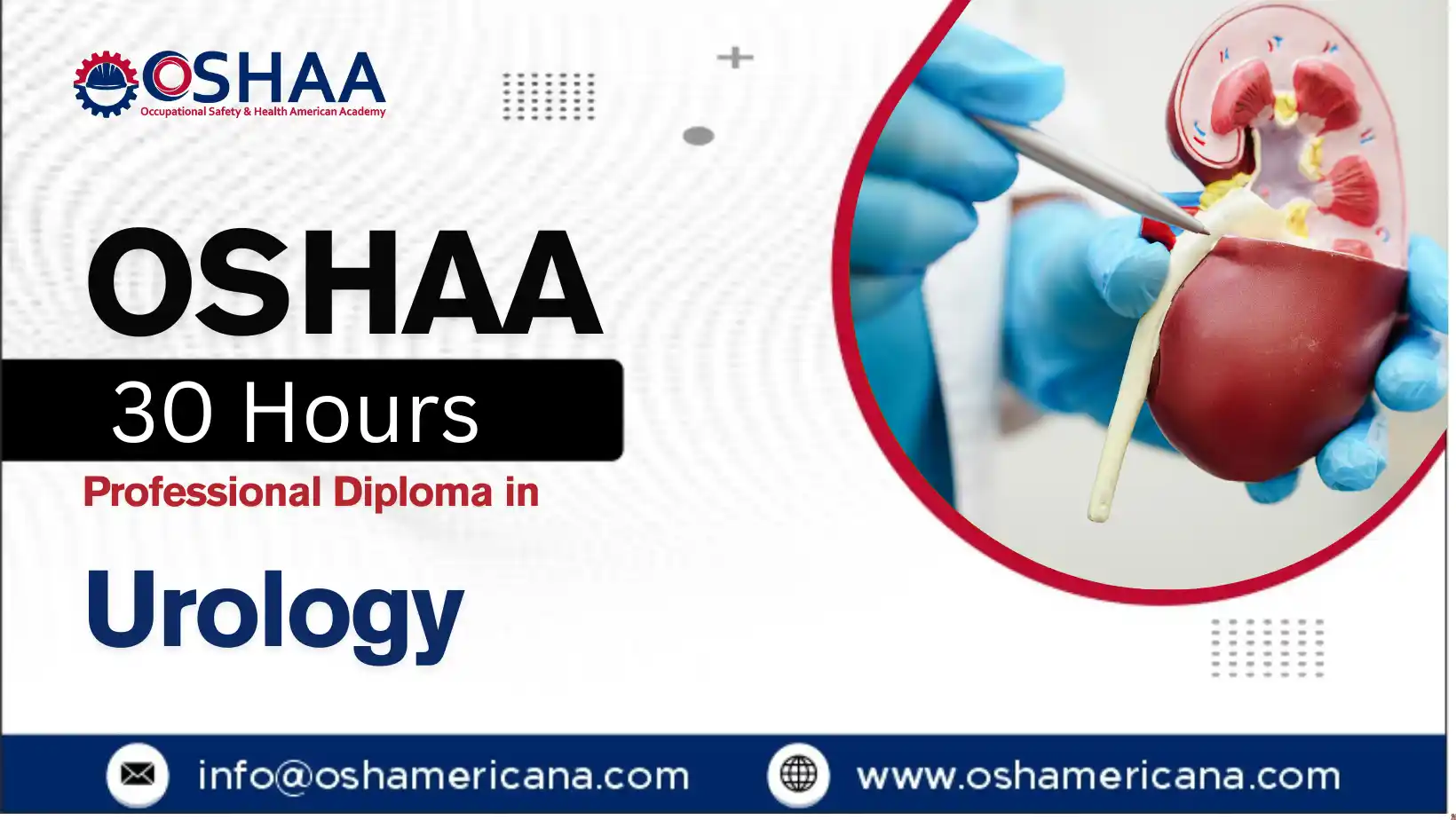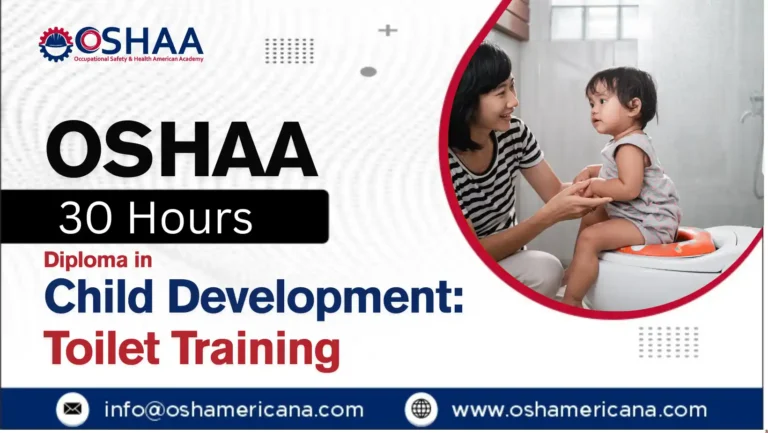The OSHAA 30-Hours Professional Diploma in Urology offers a comprehensive and practical learning pathway for healthcare professionals seeking to expand their understanding of urological health, disorders, and treatment strategies. Delivered to UK professional standards, this CPD-accredited diploma provides essential knowledge in urinary tract anatomy, disease identification, and clinical interventions, all within a structured and engaging format.
Urology plays a pivotal role in healthcare, addressing conditions that affect the urinary system and male reproductive organs. With increasing prevalence of urological conditions in both primary and specialist care, participants will benefit from a detailed exploration of the latest diagnostic and therapeutic approaches used in clinical practice. This course is especially valuable for those working in general practice, nursing, or allied health roles who support patients with urological concerns.
Participants will engage with practical modules covering the essentials of urological anatomy, benign and malignant disorders, infection management, continence care, and surgical interventions. Case-based discussions, risk assessment frameworks, and patient management guidelines are incorporated to ensure participants are well-equipped to make informed decisions in their professional roles.
The diploma places a strong emphasis on applied learning, enabling participants to translate theoretical concepts into real-world practice. Whether supporting patients in community health settings or collaborating in multidisciplinary hospital teams, participants will build confidence in addressing a broad spectrum of urological presentations.
With flexible study hours and content aligned to current UK clinical guidelines, this diploma serves as an ideal upskilling opportunity for healthcare professionals aiming to expand their scope of knowledge in a critical area of medicine.
OSHAA 30-Hours Professional Diploma in Urology
Study Units
Learning Outcomes
Introduction to Urology and Urinary Tract Anatomy (3 hours)
- Understand the structure and function of the kidneys, ureters, bladder, urethra, and male reproductive system
- Identify the key roles of the urinary system in filtration, excretion, and homeostasis
- Gain foundational knowledge necessary for recognising urological disorders
Common Urological Symptoms and Initial Assessment (3 hours)
- Recognise typical urological presentations including haematuria, dysuria, and frequency
- Conduct structured patient history taking and physical examination relevant to urology
- Interpret basic diagnostic tools such as urinalysis and bladder scanning
Benign Prostatic Hyperplasia and Lower Urinary Tract Symptoms (4 hours)
- Understand the pathophysiology of benign prostatic hyperplasia (BPH)
- Assess lower urinary tract symptoms (LUTS) using validated clinical scoring systems
- Explore pharmacological and non-pharmacological management options for BPH
Urinary Tract Infections and Antimicrobial Management (5 hours)
- Differentiate between uncomplicated and complicated urinary tract infections
- Apply clinical guidelines to antimicrobial selection and duration of therapy
- Recognise recurrent UTI patterns and develop preventative care strategies
Urological Cancers: Prostate, Bladder, Kidney and Testicular (4 hours)
- Identify risk factors, signs, and symptoms associated with major urological cancers
- Understand diagnostic pathways including PSA testing, imaging, and biopsy
- Explore treatment options including surgery, radiotherapy, and active surveillance
Renal Calculi and Urolithiasis Management (3 hours)
- Understand the formation, types, and risk factors of renal calculi
- Recognise symptoms such as renal colic and haematuria
- Review current approaches in diagnosis, acute pain relief, and surgical intervention
Incontinence and Pelvic Floor Dysfunction (6 hours)
- Distinguish between types of urinary incontinence and their underlying causes
- Perform continence assessments and interpret bladder diaries
- Explore conservative, pharmacological, and surgical management strategies
- Understand the role of pelvic floor exercises and physiotherapy in treatment
Andrology and Male Reproductive Health (2 hours)
- Gain insight into common andrological issues including erectile dysfunction and infertility
- Understand hormonal regulation and its impact on male reproductive health
- Review current assessment and treatment options available in andrology practice
Course Benefits: OSHAA 30-Hours Professional Diploma in Urology
- Recognised CPD Accreditation
Participants gain a professionally recognised qualification aligned with UK standards, enhancing their credibility and commitment to continued learning. - Comprehensive Understanding of Urological Health
The course provides detailed insights into the anatomy, function, and disorders of the urinary and male reproductive systems, essential for quality clinical care. - Improved Diagnostic and Assessment Skills
Participants will develop the ability to accurately identify and assess a wide range of urological symptoms and conditions using evidence-based approaches. - Enhanced Patient Management Abilities
Learn to manage common urological cases including infections, prostate conditions, incontinence, and urological cancers effectively in clinical settings. - Broadened Scope of Practice
Ideal for healthcare professionals looking to expand their expertise in general practice, nursing, urology, or allied health roles. - Applied Clinical Knowledge
Case-based learning and practical examples ensure participants are prepared to apply urological knowledge directly to real-world patient scenarios. - Awareness of Urological Emergencies
Participants gain the ability to identify urgent conditions such as testicular torsion, acute retention, and renal colic requiring immediate attention. - Supports Early Detection and Referral
Training supports timely recognition of serious urological diseases, contributing to better outcomes through appropriate referrals and interventions. - Strengthens Interdisciplinary Communication
Participants become more confident when discussing urological cases within multidisciplinary teams, enhancing collaborative patient care. - Flexible and Accessible Learning
Designed to accommodate busy professionals, this 30-hour diploma balances structured content with the flexibility of self-paced study.
The OSHAA 30-Hours Professional Diploma in Urology is designed for participants involved in healthcare roles where urological knowledge is essential for delivering informed and effective care. It is particularly relevant to professionals who encounter urinary tract and male reproductive health issues in their daily practice or wish to expand their clinical expertise in this area.
This course is ideal for:
- General practitioners and medical officers seeking to enhance diagnostic and referral skills
- Nurses and nurse practitioners working in primary care, urology clinics or surgical settings
- Allied health professionals such as physician associates, health visitors, and continence advisors
- Healthcare assistants and support staff involved in patient observation and monitoring
- Medical and surgical coordinators responsible for patient triage and procedural preparation
- Clinical educators and trainers involved in professional development programmes
- Professionals working in men’s health, geriatric care, or chronic disease management
Participants do not need prior specialisation in urology to benefit from this diploma. It is well suited for those aiming to broaden their scope of practice, improve patient outcomes, and strengthen their role within multidisciplinary healthcare environments.







